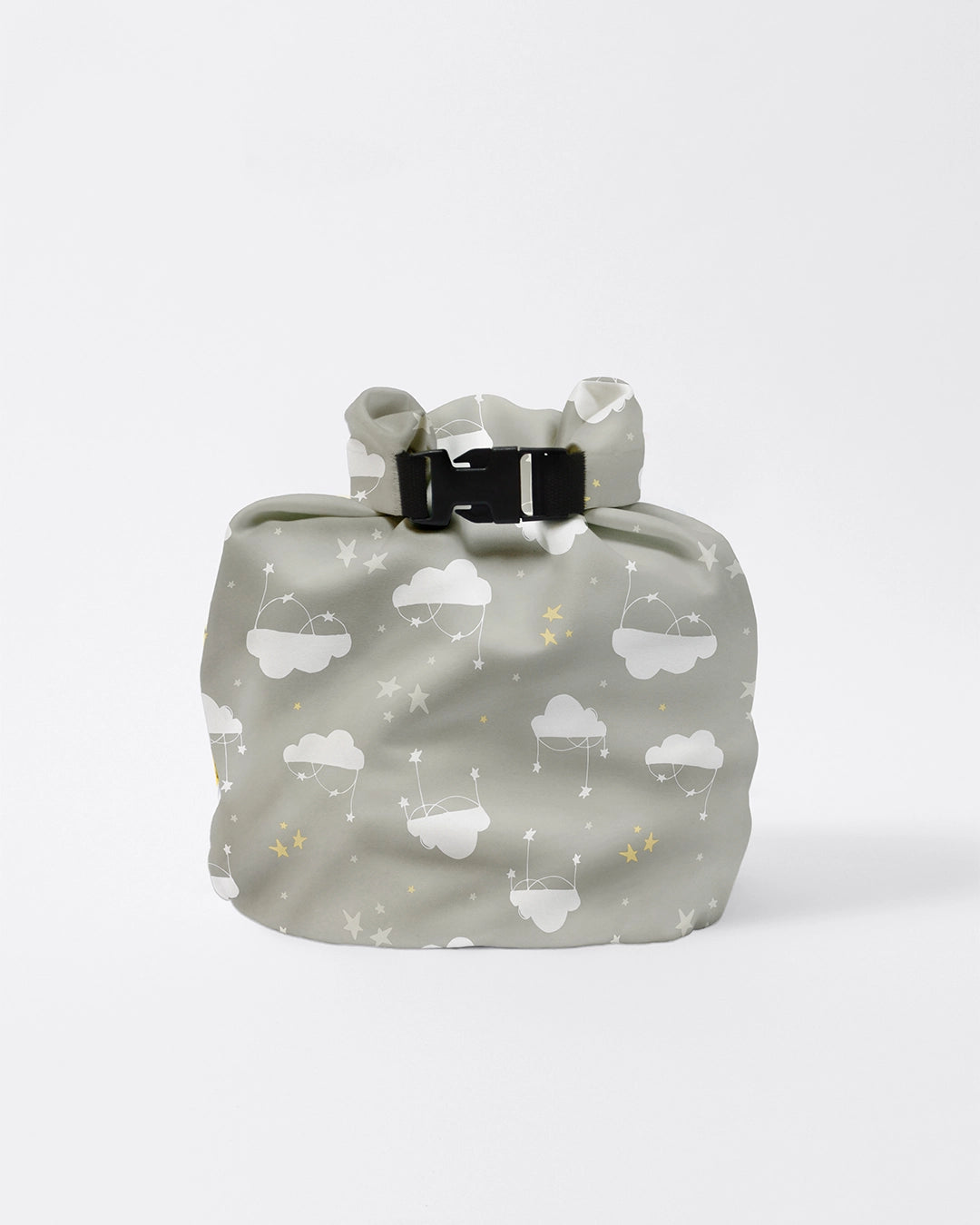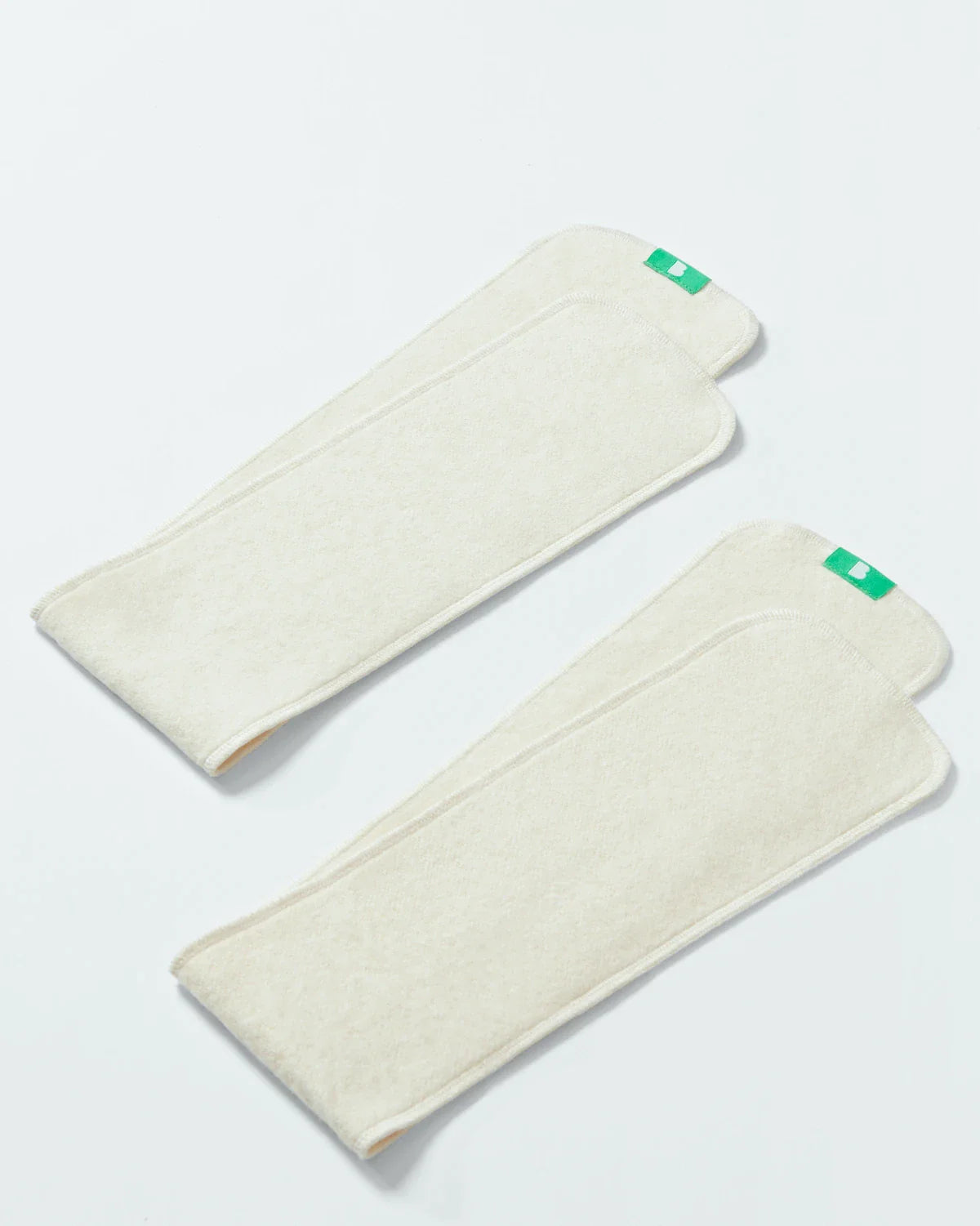Week 7 of Pregnancy | How Big is Your Baby at 7 Weeks?
Share Options
- Bambino Mio
- 09 / 07 / 2023

Inside this Article:
- At seven weeks of pregnancy your baby is the size of a blueberry!
- Your baby’s face is taking shape!
- How you’re feeling at seven weeks pregnant
- Your cervix is going through changes
- You’re glowing!
- You might feel constipated
- Your sense of smell may be enhanced
- Staying healthy at seven weeks pregnant
- Things to think about at seven weeks of pregnancy
- Citations and References
Pregnancy is a time of huge change for you, your body and your life. Our guide will help you through this amazing time, letting you know what to expect at each stage and, most excitingly, what your baby is up to each week.
At seven weeks of pregnancy your baby is the size of a blueberry!
At seven weeks of pregnancy, your baby is around 8mm (0.3in) from crown to rump.
That's about the size of a blueberry. In keeping with their tiny stature, your baby weighs a mere 1.4g (0.05oz).
Your baby’s face is taking shape!
Your baby’s face started to form during week six of pregnancy, with distinct eye, mouth, nostril and jaw regions developing. During week seven of pregnancy these features begin to look more defined and identifiable (1).
These changes are accompanied by the start of the tongue and eyelids, as well as the second stage of your baby’s kidneys. Their kidneys will go through three stages of development before birth (2) and it’s only another five weeks before they start producing urine.
Another vital structure, the umbilical cord (3), is developing further this week, too. This cord connects your baby to your placenta so it can carry nourishment to your baby and take away waste products.
How you’re feeling at seven weeks pregnant
Morning sickness, tiredness and frequent weeing may well be a feature this week if they weren’t with you already.
As well as this typical trio of pregnancy symptoms you might also notice changes in your skin, your sense of smell and your vaginal discharge.
These symptoms and changes aren’t a given – you might not notice them for a while yet or you might only have some, so don’t worry.
Your cervix is going through changes
The increase in hormone levels and blood flow involved in pregnancy causes your cervix to produce more mucus, or leukorrhea (4). You might see an increase in odouless pale discharge and it’s not there just to annoy you!
This extra cervical mucus gathers together and thickens to form a mucus plug at the os, the opening of your cervix (5). This plug seals your cervix to protect your baby by preventing bacteria from entering your uterus and stays there until a few weeks or days before labour starts.
You’re glowing!
You might not feel glowy, but your skin may well be glowing. The extra blood in your body can give your face a rosy glow while pregnancy hormones add a sheen to your skin by making it oilier than usual.
You might feel constipated
If you suddenly look a bit bloated, it’s not the baby at this stage, it’s your gut slowing down a bit. Progesterone relaxes the smooth muscle cells in your intestines (6) so food moves through your digestive system more slowly. While this clever trick helps you to absorb more nutrients, it can result in more gas and also constipation. Drinking lots of water and taking some exercise (7) can help to relieve these symptoms.
Your sense of smell may be enhanced
Which is unfortunate, given the last symptom! Lots of women report that their sense of smell becomes very acute in early pregnancy (8). This sudden superpower is thought to help pregnant women avoid spoiled or dangerous foods, but it can also make nausea and vomiting worse as some smells act as triggers.
Staying healthy at seven weeks pregnant
You’ve probably been taking your folic acid supplement (9) for a few weeks now, so keep up the good work as this vitamin helps your baby’s spine to develop properly.
Carry on with your healthy pregnancy diet (10) as best you can - morning sickness might get in the way sometimes so don’t worry if you skip (or lose) the odd meal or spend a day eating apple slices dipped in chili powder. As long as you’re keeping something down and getting your 1.5 litres of water, you’re doing great.
Add ginger slices or mint leaves to your water to help with any feelings of nausea you may have and also to encourage yourself to drink enough water. Plain water can be boring, so adding some flavourings which are also useful is a good idea.
Rest is still very much on the agenda. When you enter your second trimester of pregnancy at 14 weeks, you might feel your tiredness lift, but for now, go with it and sleep when you can.
Things to think about at seven weeks of pregnancy
Your first midwife appointment is probably next week, so think about the things you want to discuss and make a list. Your midwife will take your medical history at this booking-in appointment so add anything significant to your list too.
You might find your usual skincare products are irritating you, so switch to gentler and unscented ones. Don’t worry if your skin seems oilier (or drier) than usual, just treat your skin gently and stay hydrated.
Try to factor some exercise into your daily routine as this can help to lift your spirits and combat constipation. Just 30 minutes of walking a day is enough, especially if you’re tired.
If your breasts are suddenly larger and tender then it’s probably time to look at maternity bras, or at least more supportive bras so you’re more comfortable.
Citations and References
(1) University of New South Wales (UNSW). ‘Embryology. Carnegie Stage 14.’ 2020. Web. embryology.med.unsw.edu.au/embryology/index.php/Carnegie_stage_14
(2) National Institutes of Health (NIH). National Library of Medicine. ‘Cell and Molecular Biology of Kidney Development.’ 2009. Web. www.ncbi.nlm.nih.gov/pmc/articles/PMC2789488
(3) National Institutes of Health (NIH). National Library of Medicine. ‘Anatomy, Abdomen and Pelvis: Umbilical Cord.’ 2022. Web. www.ncbi.nlm.nih.gov/books/NBK557389
(4) Healthline. ‘Vaginal Discharge During Pregnancy: What’s Normal.’ 2019. Web. www.healthline.com/health/pregnancy/vaginal-discharge-during-pregnancy
(5) Wiley Online Library. Obstetrics & Gynecology. ‘The Cervical Mucus Plug: Structured Review of the Literature.’ 2010. Web. obgyn.onlinelibrary.wiley.com/doi/10.1080/00016340902852898
(6) University of Rochester Medical Center. ‘Pregnancy: How Your Digestion Changes.’ Web. www.urmc.rochester.edu/encyclopedia/content.aspx?contenttypeid=90&contentid=P09521
(7) National Health Service (NHS). Keeping Well in Pregnancy: Exercise in Pregnancy.’ 2023. Web. www.nhs.uk/pregnancy/keeping-well/exercise
(8) Frontiers in Psychology. ‘Olfaction and Pregnancy; a Review.’ 2014. Web. www.frontiersin.org/articles/10.3389/fpsyg.2014.00067/full
(9) National Health Service (NHS). ‘Folic Acid. Pregnancy, Breastfeeding and Fertility While Taking Folic Acid.’ 2022. Web. www.nhs.uk/medicines/folic-acid/pregnancy-breastfeeding-and-fertility-while-taking-folic-acid
(10) National Health Service (NHS). ‘Keeping Well in Pregnancy. Eating Well in Pregnancy.’ 2023. Web. www.nhs.uk/pregnancy/keeping-well/have-a-healthy-diet
Pregnancy by Week, What to Expect







































